 Goal 10. Reduced Inequality
Goal 10. Reduced Inequality
10.6.2 Access to university track underrepresented groups applications
2023-2024
The Arab Academy for Science, Technology and Maritime Transport (AASTMT) ensure equitable access to its academic programs for underrepresented groups through a comprehensive and inclusive strategy. This approach advances social justice, promotes equal opportunity, and addresses social inequalities by implementing targeted outreach initiatives for women, low-income students, and marginalized communities through school visits and community engagement activities.
AASTMT’s admissions process incorporates socioeconomic factors and personal circumstances to reduce disparities and foster equity. The Academy also provides financial aid and scholarships based on both merit and need, reinforcing its commitment to diversity and inclusion.
Furthermore, AASTMT systematically monitors and analyzes the applications and admissions of various underrepresented demographics—including ethnic minorities, non-traditional students, women, LGBT individuals, students with disabilities, and refugees—to support their integration and enhance social mobility. These efforts reflect AASTMT’s dedication to building an inclusive academic environment that combats discrimination and contributes to reducing inequality in alignment with Sustainable Development Goal 10 (Reduced Inequalities).
The Arab Academy for Science, Technology and Maritime Transport (AASTMT) has established comprehensive financial support mechanisms aimed at enhancing social inclusion, promoting equal opportunity, and reducing economic inequality in access to higher education. The Academy offers a wide range of partial and full scholarships, as well as financial discounts, to support students experiencing financial instability, including those from developing countries, migrant and foreign workers’ families, and students with special needs. Support is allocated through a transparent process based on socioeconomic indicators such as health status, parental income, and family circumstances.
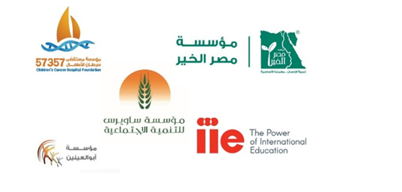
In addition to institutional scholarships, AASTMT collaborates with a network of local charitable foundations—including Abu Elenin Foundation for Social Activity, Misr Al Khair Foundation, Sawiris Foundation for Social Development, the Agricultural Bank in Matrouh, and Ezz Iron—to ensure that students from disadvantaged backgrounds receive the necessary financial assistance. Furthermore, the Academy maintains strong partnerships with foreign Arab entities, such as Eastern Triangle Consulting and Development Company (Yemen), Iraqi Oil Tanker Company (Iraq), Ministry of Maritime Transport (Yemen), Sea Ports Authority (Sudan), and several Arab cultural attachés. These collaborations enable the provision of international scholarships and cross-border financial support, ensuring broader social integration and educational mobility for students from the region.
Through these mechanisms, AASTMT addresses social inequalities, mitigates disparities, and supports upward social mobility for vulnerable groups. By integrating principles of health equity, migration inclusion, and financial stability, the Academy affirms its leadership in advancing reduced inequalities and fostering an inclusive, globally connected learning environment.
Conditions for Applying for and Continuity of Student Support
Parenting with “Sawiris Foundations”
In alignment with SDG 10 (Reduced Inequalities), AASTMT has actively advanced inclusive educational access by partnering with the Sawiris Foundation’s distinguished “Sawiris Distinction Scholarship for Students with Disabilities.” This full scholarship—covering tuition, academic materials, living expenses, and assistive tools—enables outstanding Egyptian students with disabilities to enroll and thrive at AASTMT, thereby narrowing structural barriers to higher education.
By facilitating equitable opportunities for underrepresented groups, the Academy reinforces its commitment to social inclusion, mitigates inequality of opportunity, and strengthens its SDG 10 contribution through tangible financial and institutional support.
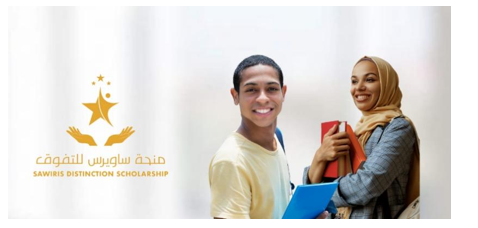
https://sawirisfoundation.org/ar/scholarships/pwds/
Scholarships at AASTMT Alamein Campus
As part of its institutional commitment to SDGs, which focuses on implementing policies for equitable access and eliminating discrimination, the Arab Academy for Science, Technology and Maritime Transport (AASTMT) has introduced targeted scholarship initiatives to expand opportunities for underrepresented and high-achieving students. In 2023–2024, AASTMT announced full scholarships for top-performing students at its El-Alamein branch, ensuring that academic excellence is recognized and supported regardless of socioeconomic background. This initiative reflects a clear policy framework that promotes fairness, transparency, and inclusiveness in admissions and financial support. By removing financial barriers and enhancing accessibility, AASTMT strengthens its role in reducing inequalities in higher education and demonstrates tangible alignment with SDG 10.6.2 objectives.
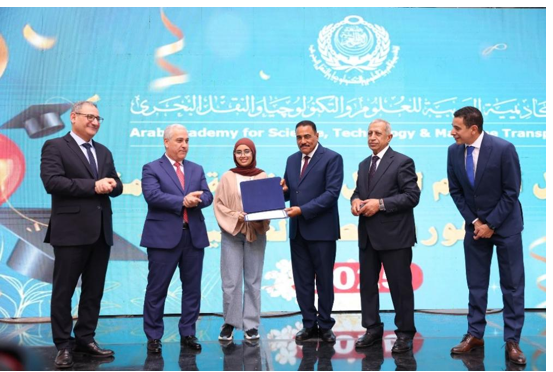
https://gate.ahram.org.eg/News/5275757.aspx
https://aast.edu/en/news/news-details.php?language=1&unit_id=1&news_id=486102925&event_type_id=1
South Vally Campus
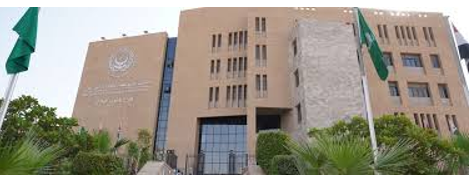
To reinforce AASTMT’s commitment under SDG 10, which demands policies and actions for non-discrimination and equitable access, AASTMT has enacted a permanent 50 % tuition fee subsidy for students from the South Valley region (including Aswan, Qena, Luxor, the New Valley, Red Sea, etc.).
This policy ensures that learners from historically underserved and economically more disadvantaged southern governorates can access higher education with reduced financial burden. It demonstrates the Academy’s institutionalized approach to fairness and inclusion in its admissions and financial aid practices, directly addressing inequality of opportunity. By embedding this subsidy in its corporate policy, AASTMT strengthens its alignment with target SDG10 and enhances its contribution to reducing regional and social disparities in access to university education.
2022-2023
The AASTMT provides equitable access to its programs for underrepresented groups through a multifaceted approach. This includes a comprehensive outreach program targeting women and low-income students via school visits and community events, a dedicated admissions process that evaluates applicants based on socioeconomic factors and personal circumstances, financial aid and scholarships specifically for these groups based on merit and need, and a strong emphasis on diversity and inclusion. Additionally, AASTMT actively measures and tracks the applications and admissions of various underrepresented demographics, including ethnic minorities, non-traditional students, women, LGBT individuals, disabled students, and refugees.
Financial Support
A range of financial aid options and scholarships specifically tailored for underrepresented groups, awarded based on merit, financial need, and identity. The academy conducted several agreements with charity organizations for the benefit of underrepresented groups, especially students facing financial problems.
https://aast.edu/en/centers/aicc/contenttemp.php?page_id=42400032
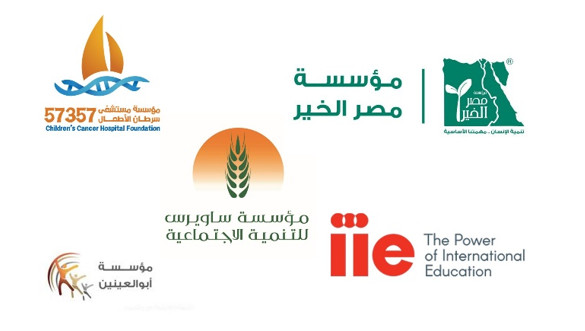
South Vally Campus
The establishment of the South Valley Campus in Aswan, which provides educational services at tuition fees that are 50% lower than those at other branches of the Academy, underscores AASTMT's dedication to fostering diversity and inclusion. By making education more accessible to students from low-income communities, this initiative aims to ensure equal educational opportunities for all individuals, regardless of their socio-economic status. This commitment not only cultivates an inclusive atmosphere but also empowers people and enriches communities through education. Furthermore, these efforts contribute to addressing educational inequalities and promoting a more diverse academic environment.
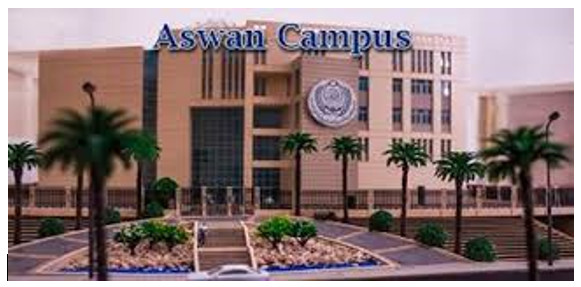
2021-2022
The AASTMT is committed to ensuring that underrepresented groups have equitable access to its university tracks and programs. Here are some examples of how the academy is working to achieve this goal:
- comprehensive outreach and awareness program that targets underrepresented groups, including women, and students from low-income families. The program includes a variety of initiatives, such as school visits, community events, and online resources. Student Affairs-Alexandria | AASTMT
- dedicated admissions process for underrepresented groups. This process takes into account factors such as an applicant's socioeconomic background, first-generation status, and disability.
- offers a variety of financial aid and scholarships specifically designed for underrepresented groups. These scholarships are based on merit, need, and identity.
- strong commitment to diversity and inclusion. through a number of initiatives in place to create a welcoming and inclusive environment for students from all backgrounds.
AASTMT Measures and tracks applications and admissions of underrepresented (and potentially underrepresented) groups including ethnic, low-income students, non-traditional students, women, LGBT students, disabled students, and newly settled refugee students Undergraduate Admission on the AASTMT news page



